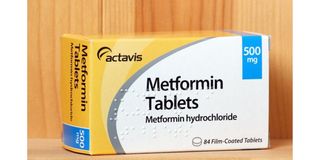Prime
Do I need to change my diabetes medication?

What you need to know:
- It is important to correct hypoglycaemia as fast as possible by taking sugary foods or drinks including sweets, fruit juice, honey, sodas or coke (but not diet coke or soda) and glucose tablets.
I have been using metformin tablets and injections to manage diabetes. Lately, whenever I take the injections, my heart beats too fast and I start shaking. Why? Gladys
Hello Gladys,
You likely get low on sugar (hypoglycaemia), resulting in palpitations and tremors. hypoglycaemia is when the blood sugar falls below 70 mg/dL or 3.9 mmol/L. Low blood sugar, just like high blood sugar, can lead to serious symptoms and should be avoided or if it happens, be corrected.
Some people with hypoglycaemia may in addition to palpitations and tremors feel fatigued, dizzy, sweating, too much hunger, or even headache because the body releases the fear, fight and flight hormones (chiefly adrenaline) to try and raise blood sugar. Untreated hypoglycaemia can cause fainting and even death.
It is important to correct hypoglycaemia as fast as possible by taking sugary foods or drinks including sweets, fruit juice, honey, sodas or coke (but not diet coke or soda) and glucose tablets.
Taking too many drugs for diabetes, especially insulin, not eating enough food, especially due to loss of appetite or skipping meals, drinking too much alcohol, and engaging in too much physical exercise without reducing the drug dosages, can all lead to hypoglycaemia.
However, there could be other reasons you have those symptoms, requiring that you visit your doctor for evaluation and further treatment.
Meanwhile, you also require stopping taking your medication and see your doctor immediately for further investigation and management.
After gallstone removal, why is my stool green?
I had an operation to remove gallstones last year but ever since, my stool has been green. Why? Bendar
Dear Bendar,
Many people may indeed live with gallstones without having any symptoms but if they repeatedly do, they may need surgery which most times removes the gall bladder (cholecystectomy). It is also true that the main symptom caused by the gallstones that leads to this surgery is severe or recurrent pain in the right upper abdomen.
Green stool usually results from foods such as greens, and drugs for blood such as iron and may happen in newborns without causing alarm.
In adults, the gallbladder stores and concentrates bile (a yellow juice from the liver) sent to the small intestines to help the body digest fat in the food. In so doing, the bile usually makes stool look yellow.
Following gallbladder removal, there is then no reservoir for bile resulting in diarrhoea due to irritation of the rectum and the anal canal, by the ever-flowing bile apart from this leading to green or frothy stool.
Although green stools after cholecystectomy may happen, when this is accompanied by other symptoms such as vomiting or serious diarrhoea, a doctor should be consulted for help.




